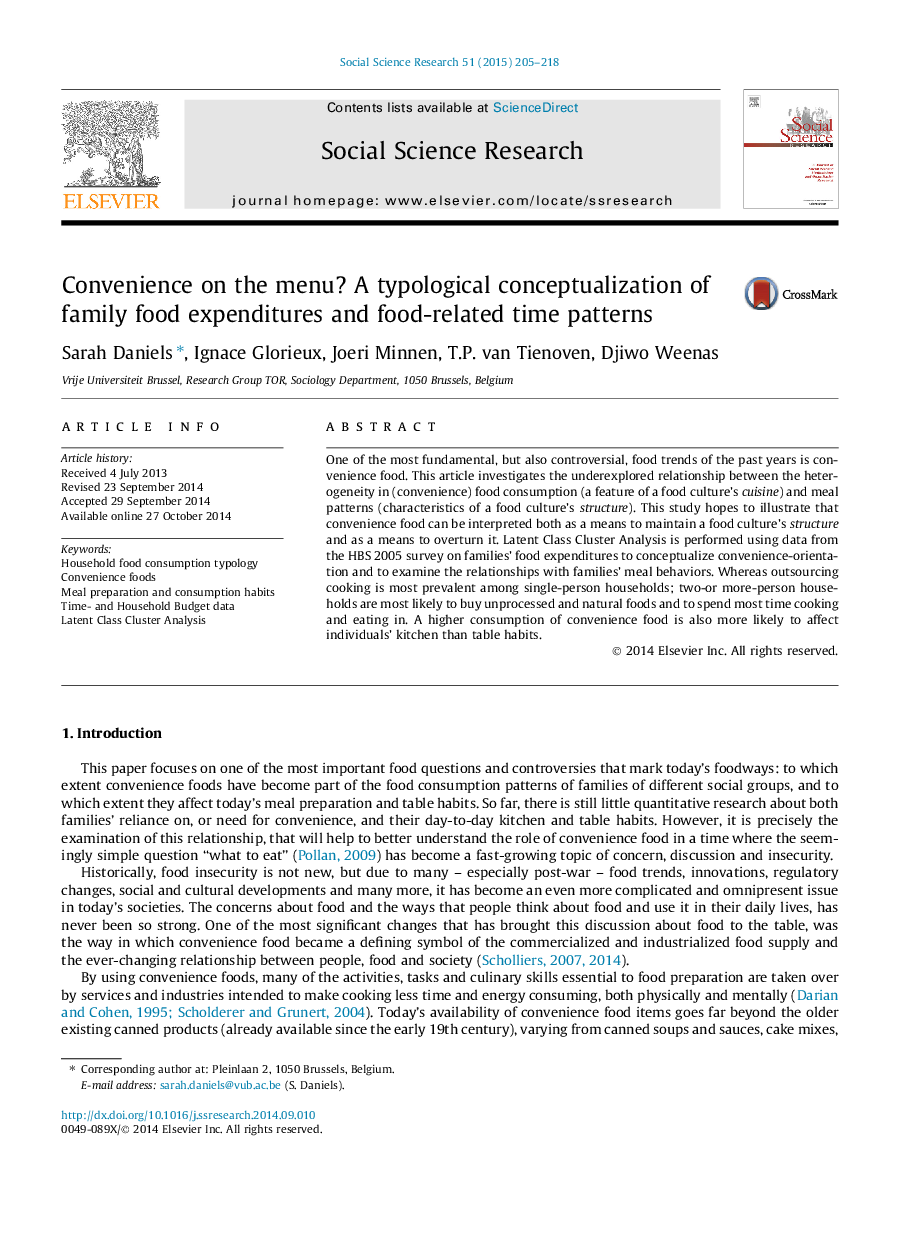| کد مقاله | کد نشریه | سال انتشار | مقاله انگلیسی | نسخه تمام متن |
|---|---|---|---|---|
| 955745 | 1476124 | 2015 | 14 صفحه PDF | دانلود رایگان |
• Food habits are measured using both a consumption-and situation-oriented approach.
• Unprocessed-foods still account for the majority of households’ food-expenditures.
• LCA reduces the complexity of household convenience-food-orientation in 4 clusters.
• The four household food-patterns have distinct socio-economic household profiles.
• A higher convenience-food-orientation is more likely to affect cooking than eating.
One of the most fundamental, but also controversial, food trends of the past years is convenience food. This article investigates the underexplored relationship between the heterogeneity in (convenience) food consumption (a feature of a food culture’s cuisine) and meal patterns (characteristics of a food culture’s structure). This study hopes to illustrate that convenience food can be interpreted both as a means to maintain a food culture’s structure and as a means to overturn it. Latent Class Cluster Analysis is performed using data from the HBS 2005 survey on families’ food expenditures to conceptualize convenience-orientation and to examine the relationships with families’ meal behaviors. Whereas outsourcing cooking is most prevalent among single-person households; two-or more-person households are most likely to buy unprocessed and natural foods and to spend most time cooking and eating in. A higher consumption of convenience food is also more likely to affect individuals’ kitchen than table habits.
Journal: Social Science Research - Volume 51, May 2015, Pages 205–218
